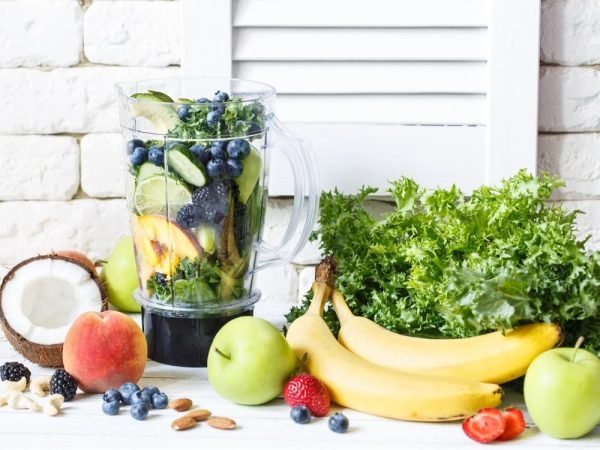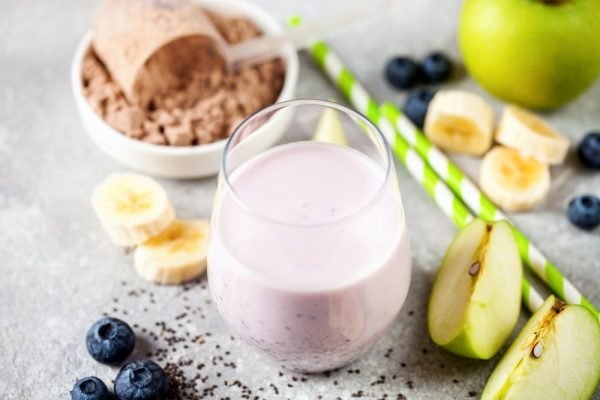The Importance of Protein in Women's Life

Outline of the Article:
1.Introduction
-Brief overview of the importance of nutrition in women's lives.
-Introduce the significance of protein for women's health.
2.Understanding Protein
-Explanation of what protein is and its role in the body.
-Different types of protein and their sources.
Protein
3.Requirements for Women
-Discuss the specific protein needs for women at different stages of life (e.g., adolescence, pregnancy, menopause).
-Highlight the importance of protein for maintaining muscle mass and supporting various bodily functions.
4.Benefits of Protein for Women's Health
-Detail the benefits of protein in supporting weight management.
-Discuss its role in improving skin health and promoting hair growth.
-Explain how protein aids in hormone regulation and mood stabilization.
5.Protein-Rich Foods for Women
-Provide a list of protein-rich foods suitable for women, including both animal and plant-based sources.
-Offer tips for incorporating protein into meals and snacks.
6.Protein Supplements for Women
-Discuss the use of protein supplements for women, including protein powders and shakes.
-Address common concerns and misconceptions about protein supplementation.
7.Protein and Exercise
-Explore the relationship between protein intake and exercise performance in women.
-Highlight the importance of protein for muscle recovery and repair post-workout.
8.Protein and Bone Health
-Explain how protein contributes to bone health and helps prevent osteoporosis in women.
-Discuss the role of protein in calcium absorption and bone density.
9.Protein and Aging
-Examine the importance of protein in maintaining muscle mass and strength as women age.
-Discuss strategies for optimizing protein intake in older women.
10.Challenges in Meeting Protein Needs
-Address common barriers to adequate protein intake for women, such as dietary restrictions and lifestyle factors.
-Offer solutions and practical tips for overcoming these challenges.
11.The Risks of Protein Deficiency
-Outline the potential health consequences of inadequate protein intake in women.
-Discuss symptoms of protein deficiency and when to seek medical advice.
12.Myths and Facts About Protein for Women
-Debunk common myths surrounding protein consumption in women.
-Provide evidence-based facts to support the importance of protein in women's diets.
- Drinking a vegan protein smoothie every day
-every day can help you lose weight, build muscle, and improve recovery after exercise.
Traditional Protein Powders also Contains the #1 Greatest Risk in the American Diet
In 2018, a study sparked a discussion about protein powder, primarily vegan protein powder, and its association with heavy metals.
- Conclusion
- Recap the key points about the importance of protein for women's health.
- Emphasize the role of protein in supporting overall well-being and vitality.
Article:
Introduction

In the realm of women's health, nutrition stands as a cornerstone for vitality and well-being. Among the essential nutrients, protein emerges as a crucial component for sustaining a healthy female body. Let's delve into the significance of protein in nourishing women's lives.
Understanding Protein
Protein serves as the building blocks of life, playing a fundamental role in various bodily functions. From supporting muscle growth and repair to aiding in hormone production, protein is indispensable for optimal health. It comprises amino acids, which are vital for the synthesis of tissues, enzymes, and hormones. While animal sources like meat, fish, and dairy are rich in protein, plant-based options such as legumes, nuts, and seeds also offer substantial protein content.
Protein Requirements for Women
Women's protein needs fluctuate across different stages of life, reflecting periods of growth, pregnancy, and aging. During adolescence, protein is pivotal for supporting rapid growth and development. In pregnancy, adequate protein intake is crucial for fetal growth and maternal health. Similarly, menopause brings about changes in metabolism, emphasizing the importance of protein for maintaining muscle mass and hormonal balance.
Benefits of Protein for Women's Health
The benefits of protein extend beyond mere sustenance, encompassing various aspects of women's health. Firstly, protein plays a pivotal role in weight management by promoting satiety and preserving lean muscle mass. Additionally, protein contributes to vibrant skin, lustrous hair, and strong nails, reflecting its role in tissue repair and renewal. Moreover, protein aids in hormone regulation, influencing mood, energy levels, and menstrual cycles.
Protein-Rich Foods for Women
Ensuring adequate protein intake is easily achievable through a diverse array of foods. Animal sources like lean meats, poultry, eggs, and dairy products offer high-quality protein with essential nutrients. For vegetarians and vegans, plant-based options such as tofu, lentils, quinoa, and chickpeas serve as excellent protein sources. Incorporating protein-rich foods into meals and snacks ensures sustained energy levels and supports overall health.
Protein Supplements for Women
In cases where dietary protein intake may be insufficient, supplements can provide a convenient solution. Protein powders and shakes offer a concentrated source of protein, ideal for busy lifestyles or post-exercise recovery. Contrary to common misconceptions, protein supplementation can complement a balanced diet and support women's health goals effectively.
Protein and Exercise
Physical activity synergizes with protein intake to enhance muscle strength, endurance, and recovery. Whether engaging in resistance training or cardiovascular exercise, adequate protein consumption is paramount for optimizing performance and achieving fitness goals. Consuming protein-rich meals or snacks post-workout facilitates muscle repair and replenishes glycogen stores, aiding in recovery and adaptation.
Protein and Bone Health
Maintaining strong and healthy bones is a critical concern for women, particularly as they age. Protein plays a pivotal role in bone metabolism, influencing calcium absorption and bone density. Adequate protein intake, coupled with weight-bearing exercises and sufficient vitamin D, contributes to optimal bone health and reduces the risk of osteoporosis and fractures.
Protein and Aging
As women age, preserving muscle mass and strength becomes increasingly important for maintaining independence and mobility. Protein supports muscle protein synthesis, mitigating age-related muscle loss and frailty. Incorporating protein-rich foods into meals and snacks, along with regular physical activity, helps older women stay active, vibrant, and resilient.
Challenges in Meeting Protein Needs
Despite the numerous benefits of protein, some women may encounter obstacles in meeting their protein requirements. Dietary restrictions, busy schedules, and taste preferences can impede optimal protein intake. However, strategic meal planning, recipe modifications, and supplementation offer viable solutions to overcome these challenges and ensure adequate protein consumption.

The Risks of Protein Deficiency
Inadequate protein intake can have detrimental effects on women's health, manifesting in symptoms such as fatigue, muscle weakness, and compromised immune function. Prolonged protein deficiency may lead to muscle wasting, impaired wound healing, and increased susceptibility to infections. Recognizing the signs of protein deficiency and addressing them promptly is essential for maintaining optimal health and well-being.
Drinking a vegan protein smoothie every day
can help you lose weight, build muscle, and improve recovery after exercise.
Traditional Protein Powders also Contains the
#1 Greatest Risk in the American Diet
In 2018, a study sparked a discussion about protein powder, primarily vegan protein powder, and its association with heavy metals.
The study by a group called "Clean Label Projects" (a nonprofit organization that brings transparency in food and consumer product labeling) looked at the 134 leading protein brands using data from Amazon and Nielsen bestseller lists.
They were reportedly looking for "contamination with the heavy metals mercury, lead, arsenic and cadmium, supply chain contaminants and process contaminants such as BPA."
The study found that "about 75 percent of plant-based protein powders contained measurable levels of lead.
In addition to lead, the plant-based powders also contained mercury, cadmium, and arsenic.
So what Do these Findings Mean?
If you're a vegan or simply trying to incorporate more plant-based meals and snacks into your diet, then using plant-based protein powders in moderation is fine.
But did you know that the vegetable products used in vegan protein powders come from the ground? Because of this, they can bring up some heavy metals from the soil.
"What's found in the protein powder is not an added ingredient; it comes from the soil."
So long as you avoid consuming plant-based protein powder multiple times a day, it won't be a problem.
Choose brands without aspartame or its cousins, sucralose and acesulfame potassium, when buying protein powder.
These chemicals can trigger inflammation and may hinder growth, so it's best to avoid them.
Myths and Facts About Protein for Women
Dispelling myths surrounding protein consumption is crucial for empowering women to make informed dietary choices. Contrary to popular belief, protein does not inherently cause weight gain but rather promotes satiety and supports muscle growth. Moreover, consuming protein-rich foods does not jeopardize kidney function in healthy individuals, as long as hydration is adequate. By separating fact from fiction, women can
Get It Now! For More Information Click Here[https://tinyurl.com/yttnceks]
“This content has been independently produced in adherence to a strict honesty policy, but note that it contains affiliate links. When you buy via these, we may receive a commission.”